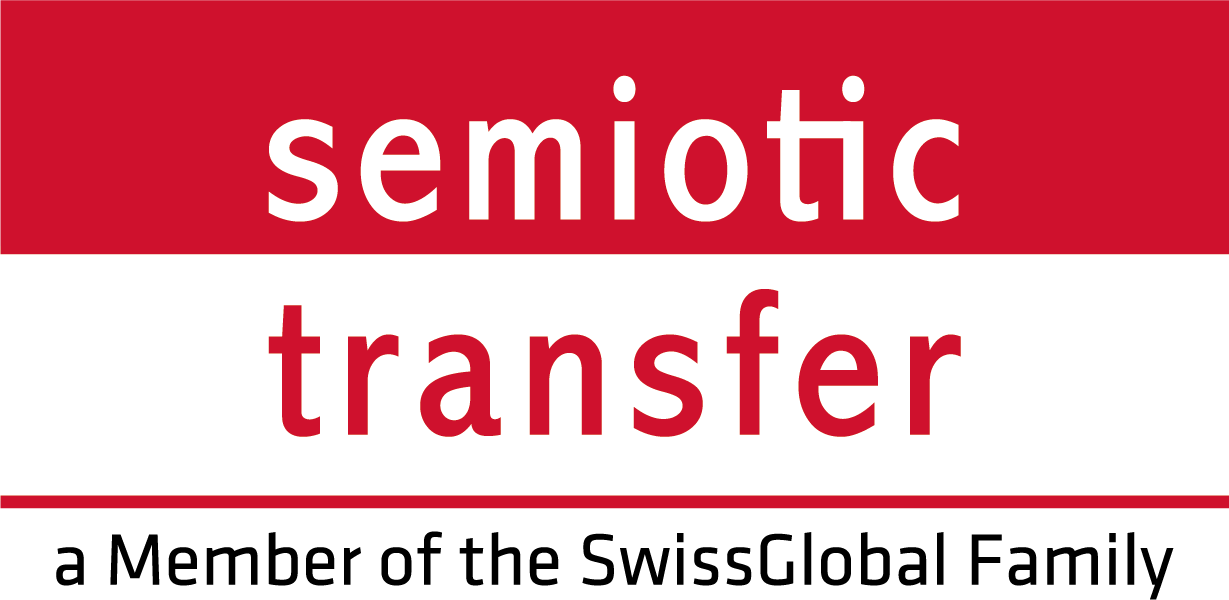SemioticTransfer is officially certified under ISO 18587, the international standard that defines the requirements for post-editing of machine translation, ensuring that all content is reviewed and refined by qualified language professionals to meet high-quality translation standards.
The certification strengthens our commitment to quality, data security, and technological integration, while continuing to deliver accurate, efficient and reliable translation services.
What is post-editing, and how is it used?
In brief, post-editing is the review process of a text translated by machine, done by a person with extensive specialist knowledge and working into their mother tongue.
Combining machine translation and post-editing allows translations to be completed quicker, potentially saving costs and time. This advantage is because the language professionals don’t have to start the translation from scratch – they receive a draft translated by machine, which they then check and optimise in terms of content, style and grammar, until the overall quality closely approaches that of a translation done conventionally.
A closer look at ISO 18587
While machine translation is not new, the formalisation of quality processes around its use is a relatively recent step in the translation industry.
ISO 18587 provides clear guidance on how and when machine translation can be used effectively, always under human supervision.
The standard defines:
- The qualifications and competence of post-editors
- The requirements for pre-production planning and client agreements
- The responsibilities of translation service providers
- The importance of quality assurance after post-editing
- How feedback is collected and used to improve future output
Post-editors must meet the same high standards as traditional translators, including academic training or equivalent work experience.
In addition, they must be familiar with machine translation systems and computer-assisted translation (CAT) tools, and be able to assess whether post-editing is appropriate for a given text.
When is post-editing useful?
Certain types of text are more suitable for machine translation with post-editing than others, including instruction manuals, corporate communication and technical texts. Criteria such as set phrases, repetitive texts and extensively standardised terminological conventions are material in this decision.
Literary works and texts that need to be interpreted or contain puns, idioms, symbolism, or metaphors typically can’t be adequately translated by a machine. The intended purpose of a text also has a major influence on whether using machine translation with post-editing makes sense.
ISO 18587 requires translation service providers to evaluate each project before production begins. That’s why we collaborate closely with our clients to determine whether machine translation and post-editing are the right fit, and under what conditions.
Data protection and confidentiality
The use of machine translation systems has become considerably more popular and widespread since 2015, even outside the translation industry. Something of which many users of free translation systems are unaware is that texts typed in or uploaded can be reused by the system providers in their entirety.
Therefore, and particularly when dealing with texts that contain sensitive data and information, the utmost caution is advised. Documents like this should never be translated by machine, unless you are using a platform with a license that guarantees that the data may not be reused.
The ISO 27001 certification ensures that any data used in machine-assisted workflows is handled under strict confidentiality agreements and in full compliance with international standards.
What does ISO 18587 mean for you?
With our ISO 18587 post-editing certification, you can count on:
- A defined and reliable post-editing process
- Expert post-editors working into their native language
- Confidential handling of sensitive documents
- Professional judgement on when machine translation is suitable or not
- Faster turnaround times on suitable projects, without sacrificing quality
This certification complements our existing ISO 17100 standard. It confirms that SemioticTransfer offers professional translation services that are both human-driven and technology-enhanced.
Let’s discuss your project.
Are you considering machine translation and want to know if it’s the right choice? We’ll help you evaluate your needs and deliver a secure, high-quality solution.
Call us on +41 56 470 40 40 or email us today at contact@semiotictransfer.ch.

